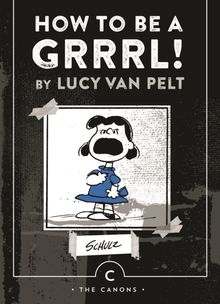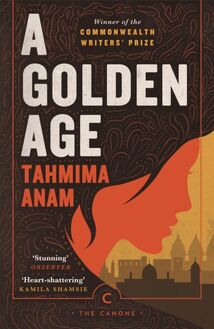Golden Age , livre ebook
132
pages
English
Ebooks
2012
Vous pourrez modifier la taille du texte de cet ouvrage
Obtenez un accès à la bibliothèque pour le consulter en ligne En savoir plus
Découvre YouScribe en t'inscrivant gratuitement
Découvre YouScribe en t'inscrivant gratuitement
132
pages
English
Ebooks
2012
Vous pourrez modifier la taille du texte de cet ouvrage
Obtenez un accès à la bibliothèque pour le consulter en ligne En savoir plus
Publié par
Date de parution
26 janvier 2012
Nombre de lectures
1
EAN13
9780857862754
Langue
English
Poids de l'ouvrage
1 Mo
Publié par
Date de parution
26 janvier 2012
Nombre de lectures
1
EAN13
9780857862754
Langue
English
Poids de l'ouvrage
1 Mo
Tahmima Anam was born in Dhaka, Bangladesh. She was selected as a Granta Best of Young British Novelist 2013. Her first novel, A Golden Age , was shortlisted for the Guardian First Book Award and the Costa First Novel Award, and was the winner of the Commonwealth Writers' Prize for Best First Book. Her second novel, The Good Muslim , was shortlisted for the DSC Prize for South Asian Literature and was also longlisted for the Man Asian Literary Prize. Her latest novel, The Bones of Grace , was published in 2016. She lives in London. @tahmima
Also by Tahmima Anam
The Good Muslim The Bones of Grace
The Canons edition published in Great Britain in 2020 by Canongate Books
This digital edition first published in 2012 by Canongate Books
Published in Great Britain in 2012 by Canongate Books Ltd, 14 High Street, Edinburgh EH1 1TE
First published in Great Britain in 2007 by John Murray (Publishers), An Hachette Livre UK Company, 338 Euston Road, London NWI 3BH
canongate.co.uk
Copyright © Tahmima Anam, 2007
The right of Tahmima Anam to be identified as the author of this work has been asserted by her in accordance with the Copyright, Designs and Patents Act 1988
British Library Cataloguing-in-Publication Data A catalogue record for this book is available on request from the British Library
ISBN 978 1 78689 862 3 eISBN 978 0 85786 275 4
For my parents, Shaheen and Mahfuz Anam, who planted hope in my heart
Freedom, you are an arbour in the garden, the koel’s song, glistening leaves on banyan trees, my notebook of poetry, to scribble as I please.
Shamsur Rahman, Shadhinota Tumi
Contents
March 1959: Prologue
March 1971: Shona with her back to the sun
25 March 1971: Operation Searchlight
April: Radio Free Bangladesh
May: Tikka Khan, the Butcher of Bengal!
June: I loves you, Porgy
July: The red-tipped bird
August, September, October: Salt Lake
November: Take my affliction
16 December 1971
Acknowledgements
March 1959
Prologue
D ear Husband,
I lost our children today.
Outside the courthouse Rehana bought two kites, one red and one blue, from Khan Brothers Variety Store and Confectioners. The man behind the counter wrapped them up in brown paper and jute ribbon. Rehana tucked the packets under her arm and hailed a rickshaw. As she was climbing in, she saw the lawyer running towards her.
‘Mrs Haque, I am very sorry.’ He sounded sincere.
Rehana couldn’t bring herself to say it was all right.
‘You must find some money. That is the only way. Find some money, and then we will try again. These bastards don’t move without a little grease.’
Money. Rehana stepped into the rickshaw and lifted the hood over her head. ‘Dhanmondi,’ she said, her voice in a thin quiver. ‘Road Number 5.’
When she got home, the children were sitting together on the sofa with their knees lined up. Maya’s feet hovered above the floor. Sohail was looking down at his palms and counting the very small lines. He saw Rehana and smiled but did not rise from his chair, or call out, as Maya did, ‘Ammoo! Why were you so long?’
Rehana had decided it would not be wise to cry in front of the children, so she had done her crying in the rickshaw, in sobs that caused her to hold on to the narrow frame of the seat and open her mouth in a loud, wailing O. The rickshaw-puller had turned around and asked, as if he was genuinely concerned, whether she would like to stop for a glass of water. Rehana had never tasted roadside water. She refused him mutely, wondering if he had children, a thought that made her lean her head against the side of the rickshaw hood and knock repeatedly in time to the bumps on the road. Now, confronted with the sight of them, she fought the pinch in her jaw and the acrid taste that flooded her mouth. She fought the fierce stinging of her eyes, the closing of her throat. She fought all of these as she handed them the wrapped-up, triangular packets.
‘Thank you, Ammoo jaan,’ Maya said, ripping into hers. Sohail did not open his. He rested it on his lap and stroked the brown paper.
‘You are going to live with Faiz Chacha,’ Rehana said evenly. ‘In Lahore.’
‘Lahore!’ Maya said.
‘I’m so sorry,’ Rehana said to her son.
‘When will we come back?’
‘Soon, I promise.’ Pray to God, she wanted to say. ‘They are coming for you on Thursday.’
‘I don’t want to.’
Rehana bit down on her tongue. ‘You have to go,’ she said. ‘Go and be brave. You can fly your kite, beta, and I will see it, all the way from Lahore. It’s a special kite. You have to be very good. Very good and very brave. Only the bravest children get windy days. And one day it will be so windy you will fly all the way back to me. You don’t believe me? Wait and see.’
Dear Husband,
Our children are no longer our children.
How would she begin to tell him?
She got back into the rickshaw with the children. ‘Azimpur Koborstan,’ she said.
The graveyard was dotted with dusk mourners. They tossed flowers on the wet pelts of grass that grew over their loved ones. In the next row a man with a white cap cried into his hands. Beside him, an old woman clutched a spray of bokul.
Rehana held the round palms of her children.
‘Say goodbye to your father,’ she said, pointing to Iqbal’s grave.
Sohail raised his fingers to his face. ‘La-ill’ahah Ill’allah.’
‘Maya, you too.’
My children are no longer my children.
The judge said Rehana had not properly coped with the death of her husband. She was too young to take care of the children on her own. She had not taught them the proper lessons about Jannat and the afterlife.
Maya chased a butterfly into the next row. Rehana seized her elbow. ‘Say goodbye to your father.’
‘Goodbye, Abboo,’ Maya said, her eyes liquid, moving with the butterfly.
‘Mrs Haque,’ the judge had asked, ‘what would your husband want?’
He would want them to be safe, she had said. Yes, he would want them to be safe.
Faiz had said, ‘It’s not safe here, milord. Martial law, strikes, people on the streets – not safe. That is why my wife and I want to take the children to Lahore.’
Lahore, the garden city with new roads and perfect buildings. It was a thousand miles away on the other side of India. Faiz was her husband’s elder brother. He was a barrister, and very rich. His wife was tall, pouty-lipped and barren. She looked hungrily at the children.
Faiz had never liked Rehana. It had something to do with Iqbal’s devotion to her. Leaving her slippers outside the bathroom door when she went to bathe. Pressing her feet with olive oil. Speaking only in gentle tones. Everyone noticed; Faiz would say, Brother, you are spoiling your wife , and Mrs Chowdhury, who lived opposite their house in Dhanmondi, would sigh and declare, Your husband is a saint.
Faiz told the story about the coin. That eight years ago Iqbal had been presented with a proposal of marriage to one Rehana Ali of Calcutta, a young woman from an aristocratic family whose father had lost an immense fortune to bad counsel and even worse luck. Iqbal was already thirty-six; he had a successful insurance business – why not marry? Why not indeed. He had tossed a coin, glanced quickly at the result and gone to sleep. The next morning he sent a message to say he agreed.
Rehana had never believed this story, because Iqbal was not the type to gamble. He was an insurance man; he dealt in security. The avoidance of accident. The sidestepping of consequence. Perhaps he had been different before he married. Perhaps that was why Faiz was upset. His brother was no longer his brother.
She should have burned some chillies and circled them over his head. Or slaughtered a goat, at the very least. But she hadn’t done either, and so he had died, sinking to his knees in front of the house one January day, his walking stick rolling into the gutter, his hand over his waistcoat searching for the pocket watch, as though he wanted to record the hour of his leaving her. ‘Maf kar do,’ he whispered to her. Forgive me.
And there she was, a widow, nothing to recommend her, no family near by. Her parents were dead; her three sisters lived in Karachi. That was when Faiz and Parveen had offered to take the children. Rehana could see them during the holidays. ‘Just for a few years,’ Parveen said, ‘Give you time to recover.’ As though it were an illness, something curable, like what was happening to the country.
When Rehana refused, Faiz and Parveen had taken the matter to court.
‘Milord,’ Faiz said to the judge, ‘Mrs Haque is distressed; she needs her rest. We are thinking only of the children.’
She had married a man she had not expected to love; loved a man she had not expected to lose; lived a life of moderation, a life of few surprises. She had asked her father to find her a husband with little ambition. Someone whose fortunes had nowhere to go.
It was getting dark; the gravestone shadows lapped at their feet.
‘Ammoo, I’m hungry,’ Maya said.
Rehana had thought to bring a packet of glucose biscuits. ‘Here,’ she said, peeling away the pink wrapper.
Sohail stood statue-still and stared into his father’s grave. ‘Let’s go home,’ he said.
‘Just a few minutes.’ She hadn’t finished explaining it to Iqbal. ‘Why don’t you see if you can get those kites up?’
The children drifted to an empty field at the edge of the graveyard, unwinding the spools of thread attached to their kites.
Rehana began again.
Dear Husband,
I have given up the only thing you left me. When the judge asked me if I knew for certain whether I would be able to care for them, I could not bring myself to say yes. I was mute, and in my silence he saw my hesitation. That is why he gave them away. It was me; my fault. No other’s. I don’t blame your brother for wanting them. Who would not want them? They are the spitting image of you.
After the verdict, in that hot room with the dust-furred ceiling fans, the black shine of velvet benches, the tattered grey wig of the judge, she had fallen to her knees. She had not been able to convince any














